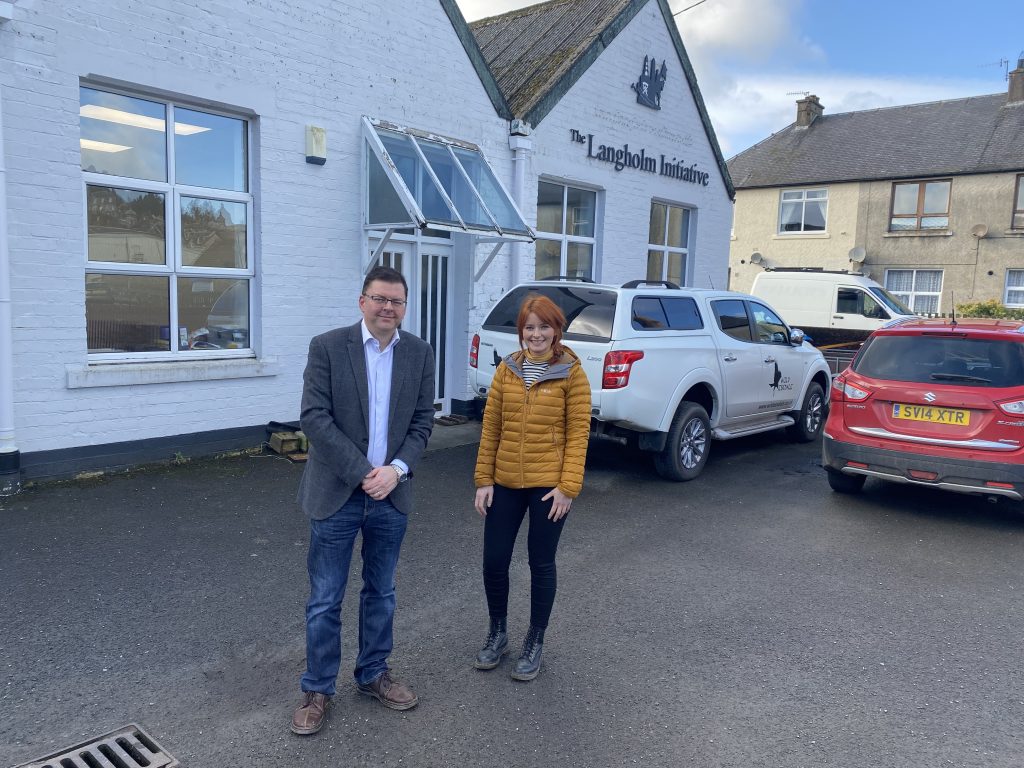South Scotland MSP Colin Smyth has used a debate in the Scottish Parliament to pay tribute to the work on nature restoration being carried out by Tarras Valley Nature Reserve near Langholm.
The local MSP was speaking in a Parliamentary debate on the loss of ancient woodlands in Scotland, where he called for support for initiatives such as the joint work between the Nature Reserve and charity the Woodland Trust to restore and enhance native woodlands on Langholm moor.
The MSP highlighted to Parliament that thanks to tireless work of the Langholm Initiative in pursuing a community buy-out, 10,000 hectares of Langholm Moor are now under the protection and ownership of the people who live and work that land, describing the move as a “quiet land reform revolution”.
Speaking in the chamber, Colin Smyth said: “In the muckle toon of Langholm, which is tucked away in the beautiful Esk valley, a quiet land reform revolution has taken place.
“Langholm moor sits on the doorstep of the former textile town and was part of the large land portfolio of the Duke of Buccleuch until recently.
“When the Buccleuch estate’s efforts to revive grouse shooting on the moor were unproductive, it promptly declared the land as surplus and put it up for sale.
“The moor’s dramatic hills, its native woodland habitat with amazing ancient oaks and alders and the stunning river valley are home to hen harriers and curlew and marked the historic boundaries of the common land for more than 250 years.
“It is little wonder therefore that the tight-knit community did what Buccleuch had failed to do and recognised the real opportunities that lay in the land.
“Against the odds, a bold fundraising effort launched by the Langholm Initiative put the town on the map, captured international attention and raised a remarkable £6 million from thousands of online crowdfunding donations from around the world and £1 million from the Scottish land fund.
“In Scotland’s biggest community land buy-out, 10,000 hectares—more than 5,500 football pitches—of the duke’s land came under the protection and ownership of the people who live and work that land, which is now known as the Tarras valley nature reserve.”
Colin Smyth continued: “The community owners, brilliantly led by estate manager Jenny Barlow and an amazing team of staff and volunteers, are pushing the boundaries of ecological and community restoration.
“They are improving the environment and seeking to build a better economic future by pursuing sustainable and responsible tourism.
“Their vision and plans for the moor are truly inspiring. With support from the Woodland Trust, they are restoring and expanding ancient woodland on the moor and are mapping its magnificent trees so that they can undertake work to give those trees more space and light to thrive.
“They are also working to remove Sitka spruce from the land, and a native tree nursery has been established nearby. That work, along with the vision of the Tarras valley nature reserve project, has really captured hearts across the world, and this Parliament and the Government must recognise and support it.”





